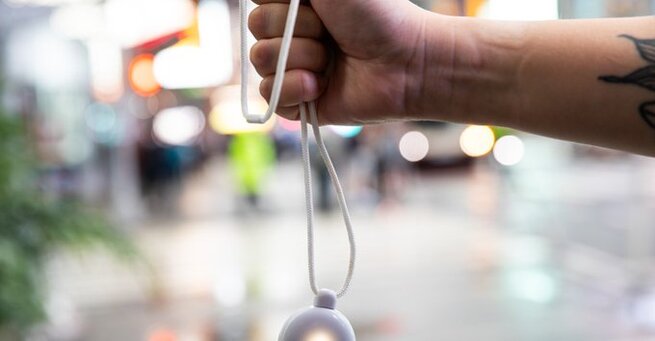Alerts

The Friend AI pendant’s creator publicized a ‘Friend protest’ in NYC — an unexpected event that quickly turned into both a spectacle and a statement about technology, loneliness, and the growing discomfort around wearable AI companions. Crowds gathered to vent their frustrations toward the device that has become one of 2025’s most controversial gadgets.
If you live in New York City, chances are you’ve seen the Friend AI pendant plastered across subway cars and tunnels. The $129 wearable, designed to act as your conversational AI buddy, has flooded the city with glossy ads and catchy slogans. But instead of excitement, the campaign triggered an avalanche of criticism — and even graffiti mocking the concept of “AI friends.”
The company, founded in 2023, reportedly spent over $1 million on its ad campaign, nearly matching what it paid for its domain name. Early reviewers described the pendant as “awkward,” “unreliable,” and “creepily intrusive,” fueling the online debate about AI’s growing presence in human relationships.
On the same weekend as the global No Kings demonstrations, another unexpected movement took shape — the so-called “Friend protest.” It all started when Avi Schiffmann, the founder of Friend, posted an image of a taped-up flyer. The flyer featured the pendant and read:
“I heard you New Yorkers got beef with me. Let’s hash this out once and for all, before we go bankrupt.”
The flyer invited people to meet, urging them to “bring your markers.” What followed was part performance art, part social commentary — and entirely viral.
According to photos and videos from the event, dozens of New Yorkers showed up to express their frustrations. People were seen defacing a large Friend banner with Sharpies, scribbling phrases like “Get real friends” and “F*** AI.” Some even created chalk art of the pendant with sad faces, while others tore apart a cardboard cutout of the device in dramatic fashion.
One clip captured attendees chanting as they ripped the mock device apart — a symbolic rejection of the idea that AI could replace genuine human interaction.
Despite being the subject of the protest, Avi Schiffmann attended the event in person. When asked whether the Friend team had organized the demonstration, he clarified that it was not a company stunt.
“During the event I was up on the soapbox speaking to the crowd and later that night found them at the park and we all sat in a big circle and talked. They were all very serious,” Schiffmann told The Verge. “I found it to be a productive conversation and we all shook hands at the end. It was a real protest for sure.”
His willingness to show up and engage with critics surprised many online, earning both skepticism and respect in equal measure.
Adding to the spectacle, Schiffmann shared a photo showing him signing a handwritten document pledging not to sell Friend.com to Big Tech CEOs for “surveillance purposes.” The gesture — though symbolic — played into growing fears that AI wearables could become tools for corporate data collection.
This act, along with his spontaneous engagement at the protest, positioned Schiffmann as both a provocateur and a defender of open, ethical AI.
The Friend protest wasn’t just about one gadget — it was a reflection of society’s mixed feelings about the rise of social AI. Some see devices like the Friend AI pendant as innovative tools for companionship; others see them as symptoms of deeper societal loneliness.
New Yorkers’ dramatic response underscored a crucial question for 2025’s tech scene: How much human connection are we willing to trade for convenience?
While the protest might have started as a quirky publicity stunt or grassroots movement, it quickly evolved into a viral commentary on modern life. Whether intentional or not, the Friend AI pendant’s creator publicized a ‘Friend protest’ in NYC that perfectly captured the cultural tension surrounding AI companionship.
As AI assistants become more personal and wearable, public sentiment like this could shape how future AI devices are designed — or rejected.
The Friend AI pendant saga shows that even the smartest tech can’t escape emotional realities. People crave connection, not code. Schiffmann’s unusual protest — and the reactions it sparked — prove that the conversation around AI friendship is far from over.
𝗦𝗲𝗺𝗮𝘀𝗼𝗰𝗶𝗮𝗹 𝗶𝘀 𝘄𝗵𝗲𝗿𝗲 𝗿𝗲𝗮𝗹 𝗽𝗲𝗼𝗽𝗹𝗲 𝗰𝗼𝗻𝗻𝗲𝗰𝘁, 𝗴𝗿𝗼𝘄, 𝗮𝗻𝗱 𝗯𝗲𝗹𝗼𝗻𝗴. We’re more than just a social platform — from jobs and blogs to events and daily chats, we bring people and ideas together in one simple, meaningful space.
